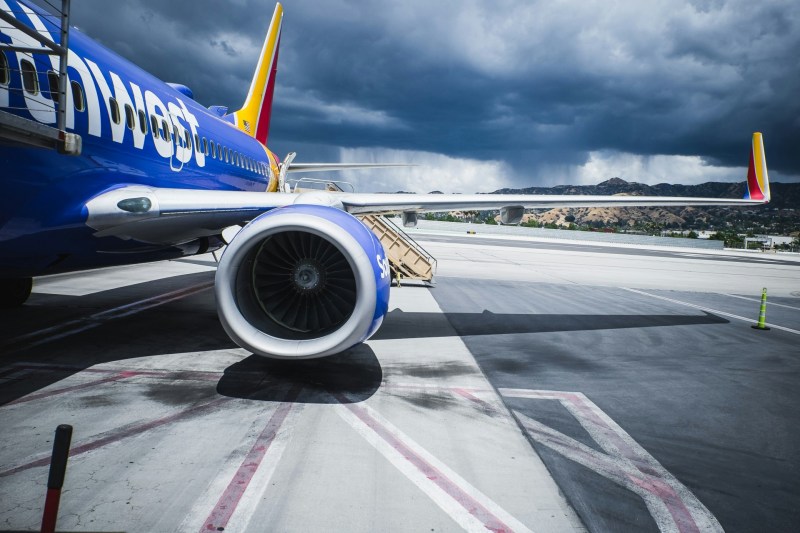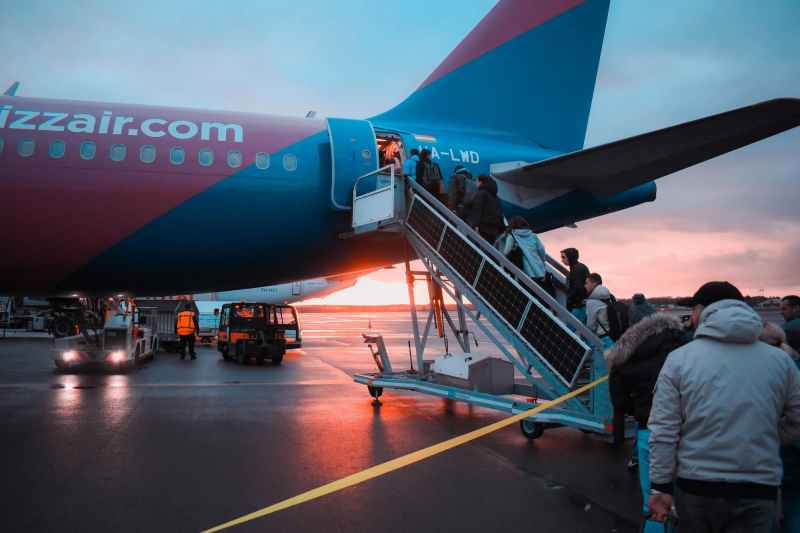Maybe this has happened to you before — you’re at the gate, bags packed, boarding pass in hand, when the announcement hits: “This flight is overbooked.” Your stomach drops, and suddenly your travel plans feel uncertain.
The first time I heard that announcement, I had no clue if I was even going to make it on the plane.
So, what does it really mean when you’re on an overbooked flight — and why do airlines even do it? Let’s break it down in plain English.
What exactly is an overbooked flight?

An overbooked flight is exactly what it sounds like: The airline sold more tickets than there are seats on the plane. At first, that sounds like a mistake or even a scam, but it’s actually a very common (and legal) practice in the airline industry.
Here’s why.
Airlines track data from years of flights and know that a certain number of passengers will cancel, change flights, or just not show up. To combat that, they sell a few extra tickets to make sure planes are as full as possible and aren’t losing money flying with empty seats.
Most of the time, this system works without anyone noticing. A couple of passengers don’t make the flight, the plane boards smoothly, and off you go.
But every once in a while, everyone shows up, and suddenly there aren’t enough seats. That’s when things get tricky.
Why airlines overbook

At the end of the day, airlines overbook for money.
Flying a plane isn’t cheap, and empty seats are essentially lost revenue. Overbooking is a calculated strategy that helps airlines keep ticket prices lower overall by ensuring they maximize every flight.
It’s not random, either. Airlines rely on statistics to guide their decisions. If history shows that an average of five people don’t show up for a specific route, the airline might sell five extra tickets. It’s a numbers game, and most of the time, they win. But every so often, their gamble backfires, and that’s when passengers start hearing that dreaded announcement.
What happens if a flight is overbooked?

If too many passengers show up, airlines usually ask for volunteers first.
People who step up are often offered compensation, which can include cash, travel vouchers, hotel accommodations, or upgrades on a future flight. It’s worth considering if you have flexible travel plans.
If there aren’t enough volunteers, airlines may involuntarily deny boarding to some passengers.
But according to the U.S. Department of Transportation, in the U.S., federal regulations require airlines to provide compensation for passengers who are bumped against their will. The amount varies depending on how long you’re delayed before being rebooked on another flight.
How to handle an overbooked flight

- Check in early. Arriving early can reduce your chances of being affected if a flight is overbooked.
- Be flexible. Volunteering to give up your seat can result in perks like vouchers, upgrades, or cash.
- Know your rights. Familiarize yourself with the airline’s policies and federal regulations so you know what compensation you’re entitled to.
- Pack essentials in your carry-on. If you end up on a later flight, you’ll still have what you need within easy reach.




